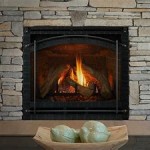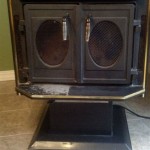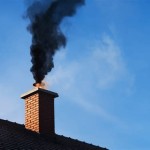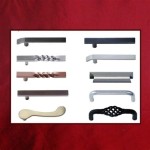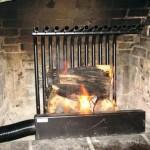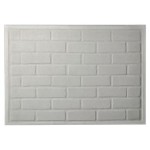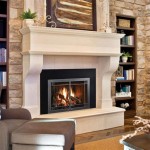Best Wood For Fireplace Use in Cape Town
Selecting the appropriate wood for a fireplace is crucial for optimal heating, efficiency, and safety. In Cape Town, access to various wood types requires understanding their burning properties and suitability for domestic heating. This article addresses the selection criteria and identifies some of the best wood options available for fireplaces in the Cape Town region.
The quality of firewood significantly impacts the fireplace experience. Factors influencing wood quality include moisture content, density, and resin content. High moisture content hinders efficient combustion, resulting in smoke production and reduced heat output. Dense hardwoods generally provide longer burning times and greater heat output compared to softwoods. High resin content can lead to excessive smoke and creosote buildup in the chimney, posing a fire hazard.
Understanding Wood Types and Their Burning Characteristics
Different types of wood possess distinct burning characteristics that affect their usability in fireplaces. Hardwoods, known for their density and slow burning rate, are generally preferred over softwoods. Softwoods tend to burn quickly and produce more smoke, making them less efficient for sustained heating. The specific wood type influences the heat output, burning duration, and overall cleanliness of the burn.
The moisture content of wood is a critical factor. Ideally, firewood should be seasoned, meaning it has been air-dried for at least six months, preferably a year or more. Seasoning reduces the moisture content to below 20%, facilitating efficient combustion and reducing smoke production. Green or unseasoned wood contains high moisture levels, which require significant energy to evaporate before the wood can effectively burn. This results in less heat and increased creosote buildup.
Resin content also plays a role. Woods with high resin content, such as pine, tend to burn hot and fast but produce more smoke and creosote. While they can be useful for starting a fire, they are not ideal for sustained burning. Hardwoods with low resin content offer a cleaner and more consistent burn.
Recommended Wood Choices for Cape Town Fireplaces
Several wood types commonly available in Cape Town are suitable for fireplace use. These woods vary in their density, availability, and cost. Selecting the right wood involves considering these factors to achieve optimal heating performance.
Blue Gum (Eucalyptus):
Blue Gum is a popular choice due to its high density and relatively low cost. It is widely available in the Cape Town area. It burns hot and for a long time, making it an efficient fuel source. However, it can be challenging to ignite and may produce more sparks than other hardwoods. Proper seasoning is crucial to minimize smoke and maximize heat output.Rooikrans (Acacia mearnsii):
Rooikrans is another readily available option. It is a dense hardwood known for its high heat output and long burning time. It also tends to be easier to ignite compared to Blue Gum. Rooikrans is a sustainable choice, as it is often sourced from managed plantations aimed at controlling invasive species.Black Wattle (Acacia mearnsii):
Similar to Rooikrans, Black Wattle is a dense hardwood with good burning characteristics. It provides substantial heat and burns for an extended period. Black Wattle is usually sourced from the same managed plantations as Rooikrans, contributing to its sustainability.Oak:
Oak is considered a premium firewood option, although it may be less readily available and more expensive than Blue Gum or Rooikrans in Cape Town. Oak is exceptionally dense, providing the highest heat output and longest burning time of the commonly available options. It burns cleanly with minimal smoke, making it an excellent choice for a clean and efficient fire.Port Jackson Willow (Acacia saligna):
While less dense than the other hardwoods mentioned, Port Jackson Willow can be a useful option when properly seasoned. It burns relatively quickly but still provides reasonable heat. The main advantage of Port Jackson Willow is its rapid growth and availability due to its invasive status, making it a sustainable (albeit temporary) choice where it is actively being cleared.Factors to Consider When Purchasing Firewood
Purchasing quality firewood requires careful consideration of several factors. The moisture content is paramount. Always inquire about the seasoning process and, if possible, inspect the wood for signs of dryness, such as cracks and a dull coloration. Avoid wood that feels heavy or appears green, as it likely contains excessive moisture.
The size and shape of the firewood are also important. Wood should be split to a manageable size, typically around 10-15 cm in diameter. This allows for efficient burning and easy handling. Ensure the wood is relatively uniform in size to promote consistent combustion.
Reputable firewood suppliers are crucial. Seek out suppliers who source their wood sustainably and properly season it. Ask for recommendations from friends or neighbors, and check online reviews. In Cape Town, many suppliers operate seasonally, so plan your purchases accordingly to ensure an adequate supply throughout the colder months.
Storage is also a key element of firewood management. Store the wood in a dry, well-ventilated area, preferably off the ground to prevent moisture absorption and rot. Covering the wood with a tarp can protect it from rain and snow while still allowing for airflow. Proper storage ensures the wood remains dry and ready for use throughout the burning season.

Fireplaces Cape Town Wood Gas Pellet Freestanding And Built In Options

Fireplaces Cape Town Wood Gas Pellet Freestanding And Built In Options

Best Wood For Fireplace South 1 Fire

Fireplaces Closed Combustion Hydrofire

Best Wood For Fireplace South 1 Fire

Fireplaces Closed Combustion Hydrofire

Fireplaces Cape Town Wood Gas Pellet Freestanding And Built In Options

Fireplaces Closed Combustion Hydrofire

Fireplaces Cape Town Wood Gas Pellet Freestanding And Built In Options

Fireplaces Closed Combustion Hydrofire

